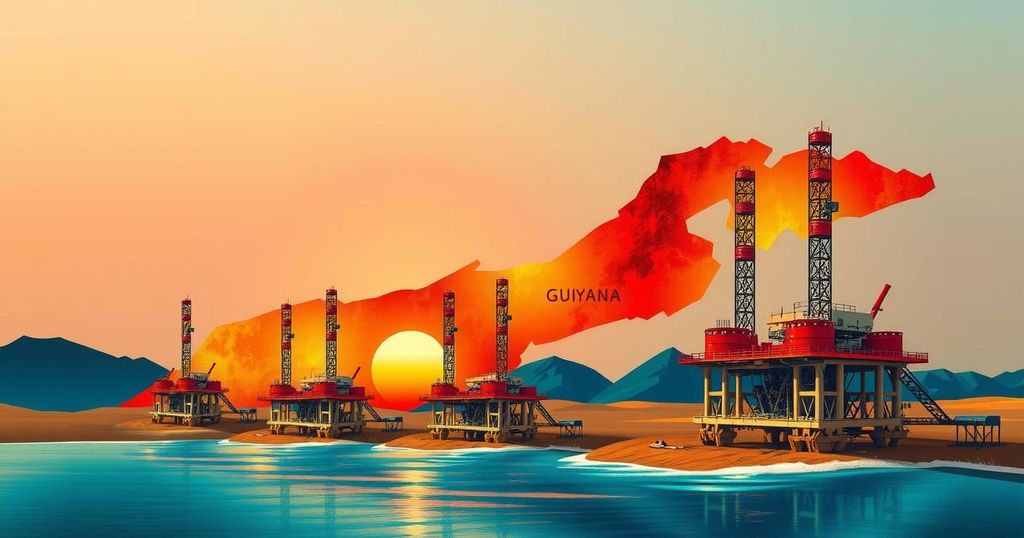Senator Marco Rubio warned Venezuela against potential military aggression towards Guyana, emphasizing U.S. support. He referred to serious consequences stemming from any aggressive actions and confirmed U.S. military readiness to protect Guyana. Dialogue included security agreements and comments on Venezuelan claims over Essequibo, amid rising oil production and Chinese influence in the region.
On Thursday, U.S. Senator Marco Rubio, the top U.S. diplomat, issued a strong warning to Venezuela regarding any military action toward its oil-rich neighbor, Guyana. He emphasized that the United States would utilize military power to safeguard Guyana should Venezuela pursue aggressive measures, especially in the disputed Essequibo region. “I have full confidence saying it now as secretary of state — there will be consequences for adventurism. There will be consequences for aggressive action,” Rubio stated during a joint press conference in Guyana.
Responding to a query on the implications of a Venezuelan attack on ExxonMobil’s oil projects, Rubio warned, “It would be a very bad day — a very bad week for them.” While he refrained from detailing a specific military response, he mentioned the readiness and reach of the U.S. Navy. Furthermore, Rubio signed a pact to enhance security cooperation between the United States and Guyana, reflecting a commitment to territorial integrity and sovereignty, which Guyanese President Irfaan Ali expressed gratitude for.
In rebuttal to Rubio’s assertions, Venezuelan Foreign Minister Yvan Gil dismissed the statements, accusing the United States of relying on outdated threats. He affirmed, “We do not need nor seek conflicts, but neither will we allow foreign interests to try to rewrite the reality about our Essequibo.” Meanwhile, U.S. Special Envoy Mauricio Claver-Carone highlighted aspirations for a stringent security alliance akin to that of the Gulf nations, where the U.S. protects oil-rich states against larger threats.
Guyana, a former British and Dutch colony, is witnessing a surge in oil production, which has become central to its economic prospects. Although discussions about formal accession to the U.S. are absent, former President Trump showed interest in expanding U.S. influence in the Western Hemisphere amidst rising Chinese interests. In this context, Rubio remarked on the perils of allowing one nation to dominate shipbuilding, noting that the U.S. must be cautious of the impact on Caribbean partners due to proposed trade policies.
Last year, the Venezuelan parliament unilaterally declared Essequibo as its 24th state, a move that has received widespread international condemnation. Guyana insists that the border was determined by an 1899 arbitration agreement, while Venezuela maintains historical claims dating back to 1777. ExxonMobil currently leads in offshore oil explorations in Guyana, with projections to produce 1.3 million barrels daily by the end of this decade, in stark contrast to Venezuela’s declining output. The Trump administration’s policies have also sought to restrict Chevron’s operations in Venezuela, emphasizing a robust U.S. stance in the region.
In summary, Senator Marco Rubio’s recent comments underscore the United States’ commitment to defending Guyana against Venezuelan aggression over the disputed Essequibo region. By strengthening security ties and signaling potential military support, the U.S. aims to deter Venezuela’s claims concerning Guyana’s oil resources. The changing dynamics of the oil industry in Guyana, alongside the growing influence of China, highlight the geopolitical complexities of the region.
Original Source: www.webstercountycitizen.com






